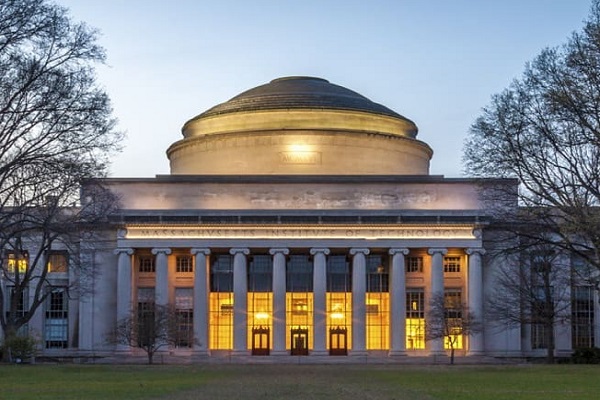Massachusetts Institute of Technology: EECS graduate women’s research summit increases research visibility and strengthens community
The MIT Department of Electrical Engineering and Computer Science (EECS) group Graduate Women in Course 6 (GW6) held its third annual research summit on Nov. 5, with attendees convening in person along with a simultaneous webcast. The summit featured research lightning talks from graduate women and other underrepresented genders across EECS, as well as a keynote from Institute Professor Barbara Liskov and a panel of five prominent women in industry and academia. (Registration was open to all students and faculty.)
“We aimed to increase the visibility of work being done by women and underrepresented genders in the department,” says Katie Matton, one of GW6’s three co-presidents. Much of the summit was devoted to a whirlwind of three-minute lightning talks, with graduates giving attendees mini crash courses in their latest research pursuits. “I was really impressed with how excited people were to share their research,” says Hallee Wong, another GW6 co-president.
The talks spanned a wide variety of research areas, from photonics to wireless communication to machine learning, reflecting the department’s diverse spectrum of electrical engineering, computer science, and artificial intelligence and decision-making disciplines. The speakers were not only pushing the boundaries of their respective fields, but they were also targeting real-world applications, with work focusing on the next generation of technology, such as quantum computing and augmented reality, as well as quality of life, including health care, agriculture, and waste management.
“It was fun presenting to an audience, and it was good seeing what other women are doing in the department,” says Leticia Mattos Da Silva, one of the lightning talk speakers.
In addition to technical talks, the summit also hosted a panel on navigating research careers, which was “the crown jewel of the event,” says Anna Zeng, a former GW6 co-president, “Every single year, the panel has been a smash hit, and this year was no exception.” The panelists were five accomplished women: MIT president emerita and professor of neuroscience Susan Hockfield; MIT assistant professors Jelena Notaros and Sixian You; Google principal scientist and Harvard SEAS Professor Fernanda Viegas; and Aude Oliva, director of the MIT-IBM Watson AI Lab. “It was cool to have women who have so much experience” and who are “pioneers in their fields,” says Matton.
Throughout the panel, there was a strong sense of community among those in the room. The panelists served as role models and mentors, giving advice on finding interesting research problems, remaining resilient to rejection, and establishing a strong support system. And when the panelists shared personal stories about overcoming gender barriers and building their own confidence, the entire room reacted in support with audible gasps and loud applause. Male attendees were also eager to lend their support, with one student asking the panelists for advice on how he can help better the experience of women students on campus. “It was nice having them hearing us and seeing the incredible work we’re doing,” says Mattos Da Silva.
After being virtual last year, the GW6 summit returned to a primarily in-person environment, much to the excitement of both the summit organizers and attendees. To take advantage of this, the summit included a coffee break and banquet dinner for attendees to connect with each other. “We know how important these interactions are with people on-campus,” says Wong.
During these networking opportunities, speakers, panelists, and other attendees flocked to chat, eat, and drink, filling the venue’s atrium with laughter and conversation. Attendees took the time to both catch up with familiar faces and also make new friends. “People seemed to have renewed enthusiasm to get to know one another,” says Zeng.
The GW6 summit is one of several major events that GW6 hosts each year to augment the professional development and community building of EECS graduate women and underrepresented genders. Recently, GW6 partnered with the newly announced EECS Thriving Stars initiative to help further improve gender representation and increase support for underrepresented genders. The GW6 summit complements a series of research summits in planning under this initiative, providing a platform for women and other underrepresented genders to share their research.

